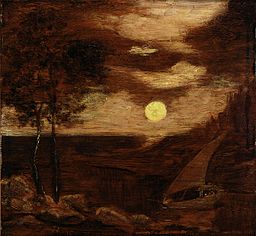Of silence, sound, and rhythm
Most folks likely didn’t notice, but I was away last week, “away” meaning cramped into an editing suite, poring over timecode and doing frame extraction. I’m back again, but last week’s work has stayed with me. Mostly, because editing video always makes me think of this scene: the Warriors gang fighting off the Baseball Furies, from the 1979 film, The Warriors.
[youtube http://www.youtube.com/watch?v=zL0ipXUD-uU?rel=0]
Oh, Ajax, you pithy pugilist, you!
A fight scene without a soundtrack instantly feels much more violent than a fight scene set to music of any kind. That silence can often work in a filmmaker’s favor. Director Walter Hill says he wanted to preserve a cartooniness with this scene from The Warriors, so he kept the music in. That’s not a critique, for musical sound and rhythm can also do a fine job of adding tension, excitement, and drama, just as well as silence. It all depends on how it’s used.
When we write, we’re not given the luxury of pumping music at our readers. So, how do we create the same level of tension with words alone?
One idea? Choose your words carefully for more than just their meaning.
Writers often think they work in silence, because words are static on a page. But the rhythm of words can be just as important as what they mean. Poets and lyricists understand this better than most other writers, because their space, time, or meter is often limited. But even the self-proclaimed short story writer or novelist shouldn’t ignore that poetic ear.
Try speaking your scene aloud. You’ll hear how the choice and cadence of each word interacts with the ones to follow, and how those interactions affect the way your story is told.
Have you ever read a story that was just he said after she said, all the way down the page? There’s nothing wrong with that approach – it’s certainly serviceable to a story. But, words can move people by more than just their definitions. Why not let them do that?
Now, lots of writers and editors will tell you that prose and poetry are two different styles for a reason. That’s not incorrect. And, it may not be the best idea to turn your action thriller into a garden of flowery prose. That’s not what I’m saying, though. I’m saying, words should fit the moment, theme, and emotion of the story being told. Even readers advanced enough not to have to read aloud will still hear those words in their heads.
Study a good action scene. The words and ideas come quick, like lightning, one after the other. No time to describe in minute detail. Why? Because it slows the reader down. On the opposite hand, study a moving scene of gentle emotion. Words move more slowly, here, like leaves drifting on the wind, spiralling to a quiet settling on the ground. An argument will crackle, snap, and finally flare up like a paper bag thrown on a fire; a sex scene will start small and grow, mounting higher and higher until it crashes like a wave against a beach, where it eases down to foam again.
Of course, those descriptions are only how I might decide to write those scenes. Deciding how words work best for you is another part of finding your own voice.Do you have any such rhythm techniques when you write? Which are your favorite types of scenes to write? Why?



![Arabian_nights_004 Arabian_nights_004 By Virginia Frances Sterret [Public domain], via Wikimedia Commons](https://mayumi.amorphous.press/wp-content/uploads/sites/4/2012/08/arabian_nights_004.jpg?w=228)

Recent Comments
The Real Person!
Author Mayumi-H acts as a real person and passed all tests against spambots. Anti-Spam by CleanTalk.
The Real Person!
Author Mayumi-H acts as a real person and passed all tests against spambots. Anti-Spam by CleanTalk.